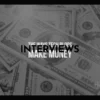Unlock Financial Wisdom: Your Guide to the Best Finance Books and Concepts
Want to get your finances on track? Wish to create a business empire? Knowledge is crucial. The finance world is not confined to old textbooks. Enjoyable finance books await you.
Finance books act like mentors. They require no small talk or high fees. Packed with insights and strategies, they can help you take charge of your finances. Whether you are starting to budget or navigating complex metrics, there’s a perfect book for you.
Dive into the Best Finance Books – Your Treasure Map Awaits
Let’s get straight to the point. You need the most impactful books. Here’s your list of financial enlightenment.
Personal Finance Powerhouses (2024 Edition)
- For the Budgeting Boss: “Get Good with Money” by Tiffany Aliche Budgeting can be enjoyable. Tiffany Aliche acts like a friendly coach, helping you control spending without feeling deprived. This book is practical and relatable, perfect for those wanting budgeting peace.
- For the Classic Connoisseur: “Think And Grow Rich” by Napoleon Hill This book isn’t just about finance; it’s about mindset. Napoleon Hill explores success principles, revealing the psychology of wealth. If you appreciate timeless wisdom, this classic is ideal.
- For the Financial Psychologist: “The Psychology of Money” by Morgan Housel Money involves emotions and biases. Morgan Housel uncovers the psychology of finance. You’ll understand why people make specific money choices. Get ready for moments that change your financial perspective.
- For the Investing Initiator: “Girls That Invest” by Simran Kaur Investing seems exclusive. Simran Kaur makes it accessible for beginners. She simplifies investing while making it enjoyable. No jargon – just straightforward steps for your investment journey.
Business Book Brilliance – Level Up Your Biz Game
In business, you need the right tools. These books serve as your survival guide.
- Thinking about startups? “Zero to One” and “The Lean Startup” are essential.
- Curious about the stock market? “The Intelligent Investor” is a classic for a reason.
- Want insight on wealth creation? “Rich Dad Poor Dad” starts discussions on money mindset.
Entrepreneurial Essentials for 2025 – Gear Up for Launch
Planning a business takeover in 2025? Equip yourself with these essential reads:
- “The Lean Startup” by Eric Ries
- “Zero to One” by Peter Thiel
- “Start with Why” by Simon Sinek
- “Thinking, Fast and Slow” by Daniel Kahneman
- “The Mom Test” by Rob Fitzpatrick
- “The 4-Hour Workweek” by Tim Ferriss
- “The Hard Thing About Hard Things” by Ben Horowitz
- “Crossing the Chasm” by Geoffrey A. Moore
This list empowers anyone entering the startup arena. Read them and thank us later.
Finance Fundamentals for Fresh Faces (Beginners’ Best of 2025)
Diving into finance? No worries. These books suit beginners with clear, simple language.
- “Finance for the People” by Paco de Leon
- “Get Good With Money” by Tiffany Aliche
- “The Simple Path to Wealth” by JL Collins
- “The Psychology of Money” by Morgan Housel
These serve as your financial starter kit. They help you navigate money confidently.
Must-Reads for Finance Pros – Deep Dive Intel
Think you know it all in finance? These books are for the finance pros. Prepare for deep dives.
- “The Intelligent Investor” by Benjamin Graham
- “A Random Walk Down Wall Street” by Burton Malkiel
- “Security Analysis” by Benjamin Graham and David Dodd
- “Understanding Corporate Finance” by John Cousins
- “Reducing the Risk of Black Swans” by Kevin Grogan and Larry Swedroe
These books are serious reads. They sharpen your financial knowledge like a fine sword.
Top 10 Business Titans – The Influencers of Industry
Curious what business leaders are reading? Check out these top ten business books. They’re essential for those serious about success.
- “Influence: The Psychology of Persuasion”
- “The E-Myth Revisited: Why Most Small Businesses Don’t Work and What to Do About It”
- “Fooled by Randomness”
- “Breakthrough Advertising”
- “Simple Numbers, Straight Talk, Big Profits!”
- “How to Win Friends & Influence People”
- “The 22 Immutable Laws of Marketing”
This list blends psychology, strategy, and business skills. Consider it your MBA reading list.
Best Money Books Ever – The Mount Rushmore of Monetary Wisdom
Seeking supreme money wisdom? These books offer timeless advice on wealth building and satisfaction.
- “The Simple Path to Wealth: Your Road Map to Financial Independence and a Rich, Free Life”
- “The Psychology of Money: Timeless Lessons on Wealth, Greed, and Happiness”
- “Atomic Habits: An Easy & Proven Way to Build Good Habits & Break Bad Ones”
These are about more than money; they emphasize a fulfilling life, including financial freedom.
Startup Stars – Books to Launch Your Dreams
Focused on startups? These are battle-tested guides for startup journeys.
- “The Lean Startup” by Eric Ries
- “The Mom Test” by Rob Fitzpatrick
- “The Hard Thing About Hard Things” by Ben Horowitz
- “Zero To One” by Peter Thiel
These books are loved by founders. They are essential texts for any startup journey.
Learning Finance Like a Pro (Without the Fancy Degree)
A formal finance education is ideal but may not fit your schedule or budget. You can still gain financial knowledge independently. Welcome to self-taught finance mastery.
Your DIY Finance Education Toolkit
- Online Courses: Platforms like Coursera, edX, and Khan Academy offer various finance courses for all levels.
- Books: You’re reading this! Books provide detailed knowledge at your pace.
- Podcasts: Listen while commuting or exercising. Finance podcasts mentor you on the go.
- Blogs: Get updates on trends and insights from financial blogs.
Self-taught finance is like creating your financial gym. You select topics and set your schedule.
Step-by-Step Guide to Teaching Yourself Finance (Like a Boss)
- Start with the Basics: Choose introductory books on finance and economics for a strong foundation!
- Course Correct with Online Courses: Explore online courses or workshops for guided learning.
- Stay News-Savvy: Follow reliable financial news. Understand current financial events.
- Join the Finance Fan Club: Participate in forums and communities. Ask questions and share knowledge.
- Practice Makes Perfect (and Profitable): Manage your finances. Create a budget and track expenses for growth.
It’s a journey. Consistent effort will make you fluent in finance.
Boost Your Financial IQ – Level Up Your Literacy
Financial literacy is ongoing. Keep your skills fresh with these resources:
- Financial Newsletters: Get curated insights directly in your inbox.
- Financial Podcasts: Listen to podcasts for expert discussions.
- Personal Finance Books: Read continuously! Learning is never-ending.
- Social Media (Wisely): Follow experts and filter untrustworthy content.
- the noise).
- Budget Like a Boss: Creating budgets is not just about restrictions. It gives you financial power.
- Consult a Pro: Speak to a financial expert when personalized advice is needed.
Think of financial literacy as your superpower. Level up and conquer financial challenges.
Educate Yourself – Finance Fuel for Your Brain
Want to dive deep into finance? Podcasts and books are your secret weapons. Courses exist, both free and paid.
- Podcasts & Books: Focus on topics that interest you. Want to understand investing? There’s a podcast or book for that.
- Courses Galore: Look at free and paid options. Free covers basics, paid targets specialized skills.
Finance learning shouldn’t be boring. Engage with your interests and grow your financial confidence.
Finance Education and Degrees – Is Formal Learning Worth It?
Are you considering a finance degree? Let’s explore formal finance education.
Finance Degrees: Are They Brutal or Brilliant?
These degrees have a reputation for being intense. Is it all number crunching and sleepless nights? Yes and no.
- The Learning Curve is Real: New concepts and math problems can feel overwhelming at first.
- Math is Your Friend (or Foe): You must grasp math well. If numbers overwhelm you, get a tutor.
Challenge accepted! Finance degrees cover everything from management to investments and data analysis. It’s tough but a strong foundation for finance careers.
Top Finance Schools – Where the Financial Elite Train
Want to dominate Wall Street? Consider these top schools for finance education:
- University of Pennsylvania (Wharton)
- University of Chicago (Booth)
- New York University (Stern)
- Columbia University
- Massachusetts Institute of Technology (MIT Sloan)
- Stanford University
- Harvard University
- University of California, Berkeley (Haas)
Getting into these schools feels like winning the financial lottery. Top schools are one path to success, not the only one.
Finance vs. Accounting – The Eternal Debate
Finance and accounting are confused often. Which one is tougher? It’s subjective, like a marathon versus a triathlon.
- Accounting’s Challenge: Rules and reporting define accounting. It demands detail and precision.
- Finance’s Challenge: Focus on quantitative skills and decision-making. Finance revolves around analysis and strategy.
Both are demanding and require sharp minds. Accounting follows rules; finance plays the game.
Math Muscles for Finance Majors – Flex Those Number Skills
Math and finance connect seamlessly. Essential skills include:
- Algebra
- Statistics
- Probability
- Business mathematics
Don’t panic! It’s not rocket science. It’s about applying math to financial problems.
Degrees That Dance Closest to Finance – Finance-Adjacent Options
If unsure about finance, consider these related degrees:
- Finance
- Business Administration
- Economics
- Accounting
- International business
These offer strong foundations for finance careers, with broader or varied focuses.
Finance Jobs Without a Degree – Breaking into the Industry
No degree? Dreaming of finance? It’s possible! This path is tougher but doable with hustle.
- Certifications are Your Weapon: Obtain certifications like Certified Financial Education Instructor (CFEI) to validate your knowledge.
- Networking is Your Superpower: Build connections, attend events, and show eagerness to learn.
Your experience and skills can outweigh formal education. Show what you can do, even without a degree.
Financial Concepts and Metrics – Decoding the Finance Dictionary
Finance has its own language, full of jargon. Let’s simplify key terms.
Book of Business – Your Client Command Center
- Client Roster: List of managed clients or accounts.
- Organization is Key: Track needs and interactions clearly.
- Relationship Power: A good book fosters strong client relationships.
Your book of business is your professional garden. Care for it, and nurture growth.
Financial Statements – The Business Report Card
“Financial statements sound dull but are vital for understanding a company’s health. Think of them as the business’s report card with all key details.
- Balance Sheet: Snapshot of assets, liabilities, and equity at one time.
- Income Statement: Shows revenue, expenses, and profit over time.
- Cash Flow Statement: Tracks cash in and out of the business.
- Statement of Changes in Equity: Details equity changes over time.
- Notes to Financial Statements: Extra explanations clarifying numbers.
Together, these tell a business’s financial story. Learn them, and unlock insights.
Annual Recurring Revenue (ARR) – Subscription Superstar Metric
- Recurring revenue from subscriptions annually.
- Shows health, helps in forecasting revenue and impressing investors.
- Sum recurring revenue over 12 months.
“ARR is the steady rhythm for subscription businesses. Consistent ARR equals satisfied businesses and investors.
GAAP (Generally Accepted Accounting Principles) – The Accounting Rulebook
“GAAP sounds official. It is. These rules guide U.S. companies in preparing financial statements.
- The Rules of the Game: Set by the Financial Accounting Standards Board (FASB).
- Ensures consistency and builds trust in financial reports.
- FASB: The body that establishes these standards.
“GAAP functions like the constitution for financial reporting. It ensures everyone abides by the same rules for reliable information.
Rule of 40 (for SaaS) – The SaaS Health Check
“SaaS companies, pay attention! The Rule of 40 assesses your financial health efficiently.
- The Magic Number: Combined revenue growth rate plus profit margin should be 40% plus or greater.
- Simple Math, Big Insight:Adds growth rate and profit margin (EBITDA margin).
- Health Indicator:This hints at financial strength attractive to investors.
The Rule of 40 acts as your SaaS financial speedometer. A score of 40 or above means you’re moving swiftly.
Customer Acquisition Cost (CAC) – How Much to Snag a Customer?
“CAC measures how much it costs to win over a customer. Are you using your resources wisely?
- The total cost of acquiring a new customer including marketing expenses.
- The Formula:CAC equals total sales and marketing costs divided by the number of new customers.
- Cost Efficiency Check:This indicates your spending efficiency per customer gained.
CAC acts as the acquisition price tag for customers. Lower CAC often leads to healthier businesses.
Monthly Recurring Revenue (MRR) – Consistent Cash Flow Champion
“Like ARR but monthly! MRR ensures steady subscription revenue each month.
- Predictable Monthly Income:This represents consistent monthly revenue from active subscriptions.
- Calculation:The formula states MRR equals paying users times average revenue per user.
- Formula Simplified:The results are derived from paying users multiplied by ARPU.
“MRR serves as your monthly paycheck from subscriptions. Stable MRR equals predictable income for business owners.
50/30/20 Budget Rule – Simplicity in Spending
“If budgeting feels complicated, the 50/30/20 rule simplifies it efficiently. It’s easy to remember and implement.
- 50% Needs:This includes essentials like housing and food.
- 30% Wants:This accounts for lifestyle choices and entertainment expenses.
- 20% Savings & Debt Repayment:Your future self will appreciate it.
The 50/30/20 rule summarizes budgeting simply and effectively, providing freedom in spending choices.
$1,000 a Month Retirement Rule – Dreaming of Passive Income
“Want $1,000 monthly passive income in retirement? This rule offers a rough estimate of savings needed.
- Savings Target Estimate:This shows how much you should save for that income stream.
- Assumptions:This assumes at least a 5%.
- annual withdrawal rate and 5% annual investment return.
$1,000 a month rule – a clear way to see your retirement savings target.
Financial Literacy and Success – Your Path to Financial Freedom
Why deal with finance? Financial literacy is key for a better life. It is not just numbers; it gives you control, freedom, and chances.
Why Read Finance Books? – Unlock Expert Insights
Books have power. Finance books give you wisdom from financial experts directly (without brain implants).
- Expert Access: Gain insights from financial authorities.
- Diverse Perspectives: Discover various views on finance management, investing, and business tactics.
Reading finance books is like having cheat codes. Learn from experts, miss common mistakes, and fast track your financial path.
Building Financial Stability – The Pillars of a Solid Future
Financial stability is not luck; it is built step by step. These are the key blocks:
- Budgeting: Manage your cash flow, track your spending.
- Debt Management: Handle debt wisely, avoid its control.
- Investing: Use your money to earn, grow wealth over time.
Master these three, and you are on the road to financial security. It’s like creating a fortress for your finances.
Tips for Financial Triumph – Actionable Steps to Success
Ready to control your financial future? Here are tips to start:
- Decision Power: Every financial move has effects. Think before spending.
- Invest in YOU: Skills, knowledge, education are vital assets.
- Plan Your Spending: Understand net vs. gross income. Budget intentionally.
- Save Like Your Future Depends on It: It does. Save today, appreciate it later.
- Budgeting Basics: Follow a budget. It’s guidance, not limitation.
- Learn to Invest: Make your money grow. Don’t let it stay idle.
Financial success demands smart choices and continuous action. Take charge, and shape the financial future you want.
The Kiyosaki Lesson – Risk, Learn, Grow
Robert Kiyosaki, author of “Rich Dad Poor Dad,” shares a key point: Don’t fear calculated risks. Learn from missteps and keep moving forward.
- Calculated Risks: Avoid recklessness but do not freeze with fear. Make smart choices.
- Learn from Failure: Mistakes happen. Use them as lessons, not limitations.
Kiyosaki’s main lesson? Don’t let fear prevent you from gaining wealth. Value learning, despite bumps along the journey.
Accounting Principles – The Foundation of Financial Truth
Accounting principles may lack glamor, but they are crucial for accurate financial reporting. Think of them as finance grammar.
Golden Rules of Accounting – The Holy Trinity of Transactions
Three vital rules define accounting. Memorize them for fluency.
- Rule 1 (Nominal Accounts): Debit expenses and losses; credit incomes and gains.
- Rule 2 (Personal Accounts): Debit receiver; credit giver.
- Rule 3 (Real Accounts): Debit what comes in; credit what goes out.
These rules guide double-entry bookkeeping. Understanding them reveals accounting mechanics.
Accounting Challenges – Principles That Can Puzzle
Some accounting principles can confuse. Here are common headaches:
- Revenue Recognition Principle: When should you record revenue? Situations can be tricky.
- Matching Principle: Match costs with revenues generated. Simple concept, complex in reality.
- Economic Entity Assumption: Keep personal finances separate from business. Easy in theory, tough for small owners.
These principles need careful judgment. Here lies the intersection of art and science in accounting.
This is your thorough guide to understanding finance through books and key concepts. Go forth, read, discover, and achieve your financial dreams! The knowledge is available; seize it!





